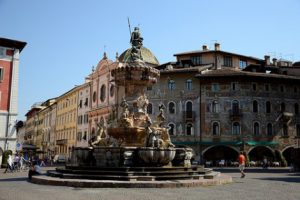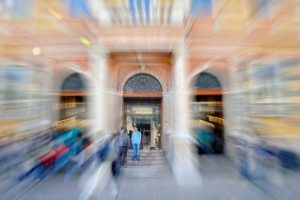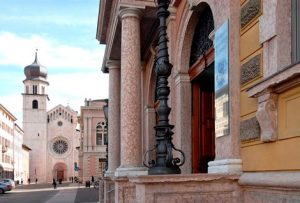Specialization 1 / Specialization 2
This specialization is only available in the Fall Semester
In the Spring Semester Trento University offers a specialization on Social Science of Biomedicine.
For more information, contact Dr. Lorenzo Beltrame: lorenzo.beltrame@unitn.it

Science and Environment in Society; Science and Environmental Communication
During the past fifteen years, Trento has developed a series of research and teaching activities in the area of Science in Society and Science Communication. Several international collaborations, interdisciplinary seminars and training have also characterised this area. In addition, since 2016, the editorship of the international peer reviewed journal Public Understanding of Science (Sage) is also being hosted in Trento. Major conferences have also been organised or co-organised, including the EASST in 2010 and PCST world conference in 2012, with another major event scheduled for late 2017.

Sociology students in Trento have the opportunity to be introduced to basic concepts since their BA, through the introductory course of Sociology of Science. Science in Society and Science Communication topics are then developed at the MA and doctoral level.
More recently, a special emphasis has been developed on the sociological analysis and communication of environmental themes and issues. Several key challenges for contemporary society as well as for contemporary science involve areas like climate, energy production, sustainable agriculture. Communicating environmental issues has become a key theme with respect to a variety of audiences (policy makers, social movements, media, general audiences, local communities) and specific challenges. The Trento area and local government has also been particularly active with regard to environmental themes and policies, sustainability and their implementation through communication and engagement strategies.
To address these issues, the specialization combines insights and methods from science and technology studies from the core of the ESST-program with those of related fields of environmental analysis (sociology, policy studies). The specialization deals with environmental challenges in close connection with fields like STS and science communication. It also looks specifically at the role of scientific expertise in the context of environmental policy making and how such expertise is communicated and perceived within society. This specialization allows students to concentrate on case studies of specific interest to them using a mix of tools provided through lectures, seminar discussions, and assignments.
The participants in this specialization will gain in-depth appreciation of different methods, theories, and practical tools to analyse environmental challenges in the context of contemporary society. By the end of their study, the student will be expected to be familiar the various ways in which environmental problems can be framed, analysing policy solutions and developcomprehensive communication strategies in terms of societal engagement and dialogue.

Our teaching staff includes leading international scholars in the analysis of environmental movements and issues (Mario Diani, Katia Pilati) as well as scholars active in the study of environmental policies (Emanuela Bozzini, Francesca Forno, Natalia Magnani) and specialists in the use of digital tools to study social conversation about science and environmental issues (Giuseppe Veltri).
Visiting students will be able to attend the course of Environmental Politics, Sociology of the environment and the seminar Science Communication 2.0 (see 7). In addition, they will receive supervision by the Trento academic staff active in this area (see 7, 9) . Teaching and working language is English.
Possible thesis topics include:
- Studies of public perception of and attitudes to science;
- Studies of public perception and communication of environmental issues (e.g. climate, food related themes);
- Studies and evaluation of public engagement activities in the area of science, technology and the environment;
- Studies of science museums and science centers visitors;
- Media coverage and social conversations about science, technology and the environment;
- Theoretical models for understanding science communication and science in society;
- Attitudes of scientists to public engagement;
- Citizen attitudes and behaviours in the area of food and energy consumption;
The new central library, designed by Renzo Piano offers a rich selection of relevant sources (journals, books, databases) in this area and extended opening hours. http://www.biblioteca.unitn.it/en/central-university-library

The new and successful Trento Science Center MUSE (with an average more than half million visitors per year), also designed by Renzo Piano, provides students additional opportunities for internship and field studies. The Museum has a strong focus on environmental preservation and several active projects and international collaborations both in the research and museum/exhibition domain in the area of environmental and sustainability communication http://www.muse.it/en/Pages/default.aspx
- Prof. Massimiano Bucchi (see 8) and dr. Emanuela Bozzini (emanuela.bozzini@unitn.it) will be the main contacts for specialisation coordination and visiting students.
- List involved staff members and main areas of expertise
Prof. Massimiano Bucchi, full professor (tenured): STS, science and technology in society, science and technology communication - Prof. Attila Bruni, associate professor (tenured): STS, technology, innovation
Prof. Giuseppe Veltri, associate professor (tenured): digital media, environmental communication - Dr. Lorenzo Beltrame, assistant professor (tenure-track): STS, innovation, bioeconomy
- Dr. Emanuela Bozzini, assistant professor (tenure-track): environmental policy and communication
- Prof. Francesca Forno, associate professor (tenured): food policy and consumption
Dr. Katia Pilati, assistant professor (tenure-track): social movements, environmental issues - Dr. Natalia Magnani, assistant professor: sociology of environment, energy policy
- Dr. Alberto Brodesco (Head of Media and Film Laboratory) and MBA Cristina Rigutto (Expert in digital science communication, contract professor) will also be involved.
Core texts
A.Hansen, B. Cox, The Routledge Handbook of Environmental Communication, Routledge, London & New York, 2015
Hackett, E.J., Amsterdamska, O., Lynch, M., Wajcman, J. (eds.), The Handbook of Science and Technology Studies, The MIT Press, Cambridge, Massachusetts, 2007.
M. Bucchi, B. Trench, (eds.) Handbook of Public Communication of Science and Technology, new edition, London & New York, Routledge, 2014.
M. Bucchi, Science in Society. An Introduction to Social Studies of Science, London & New York, 2002.
Contact details international office and information on accommodation
International students can book on campus accommodation with a two months’ notice before arrival. All student facilities are located in areas close to the various academic structures and can be reached on foot or by public transport.
250 bicycles are available to all students accommodated on campus http://international.unitn.it/incoming/accommodation
International students are supported in the needed procedures before their arrival and during their stay in Trento by the International Activities Staff offices which also organize welcome activities and events to enhance their integration within the University and in town.
Dedicated services to international students are provided for each of the three educational areas: Social Sciences and Humanities, Science and Technology, and Cognitive Science area.
In particular, incoming students for the Sociology and Social Research Department can refer to the International Activities Staff – Social Sciences Area and Humanities mailto: mobility-ssh@unitn.it
See all UniTrento employees working on international mobility on page http://international.unitn.it/incoming/contacts
Contact person:
Lorenzo Beltrame
Email: Lorenzo.Beltrame@unitn.it